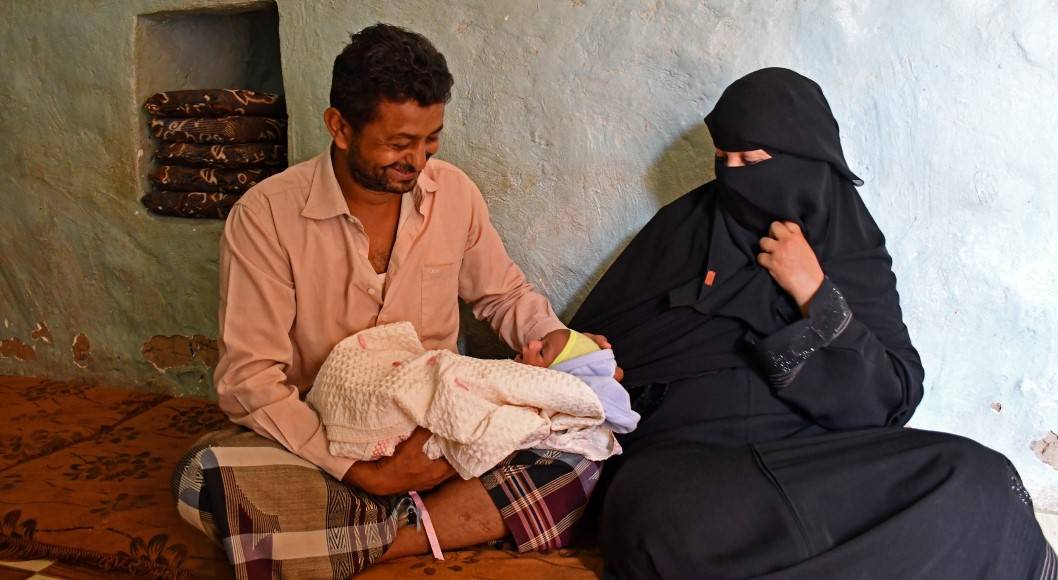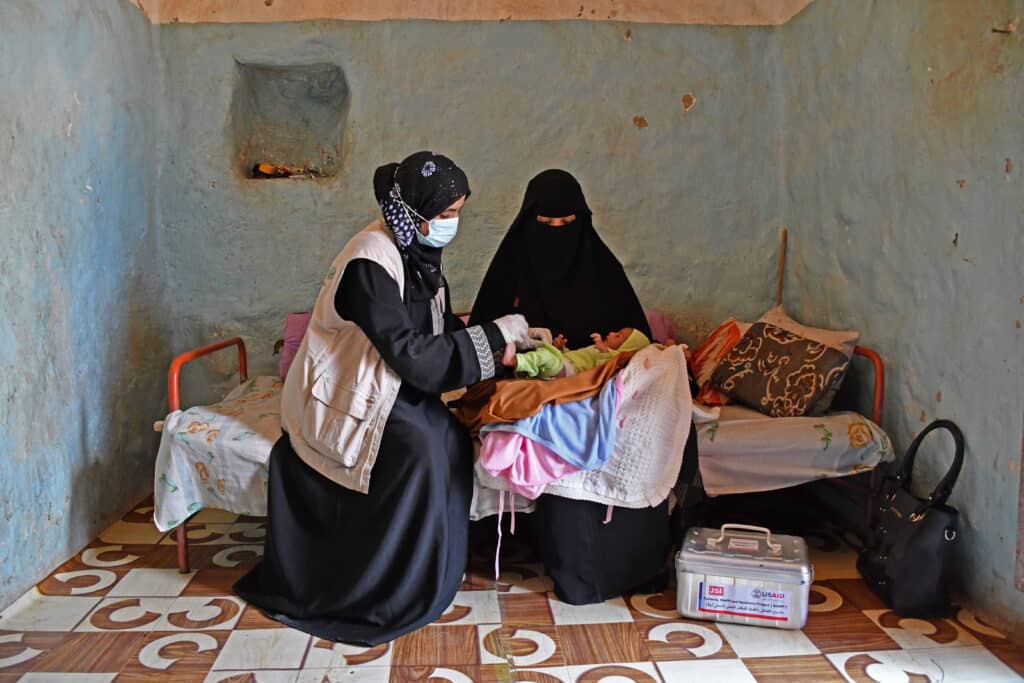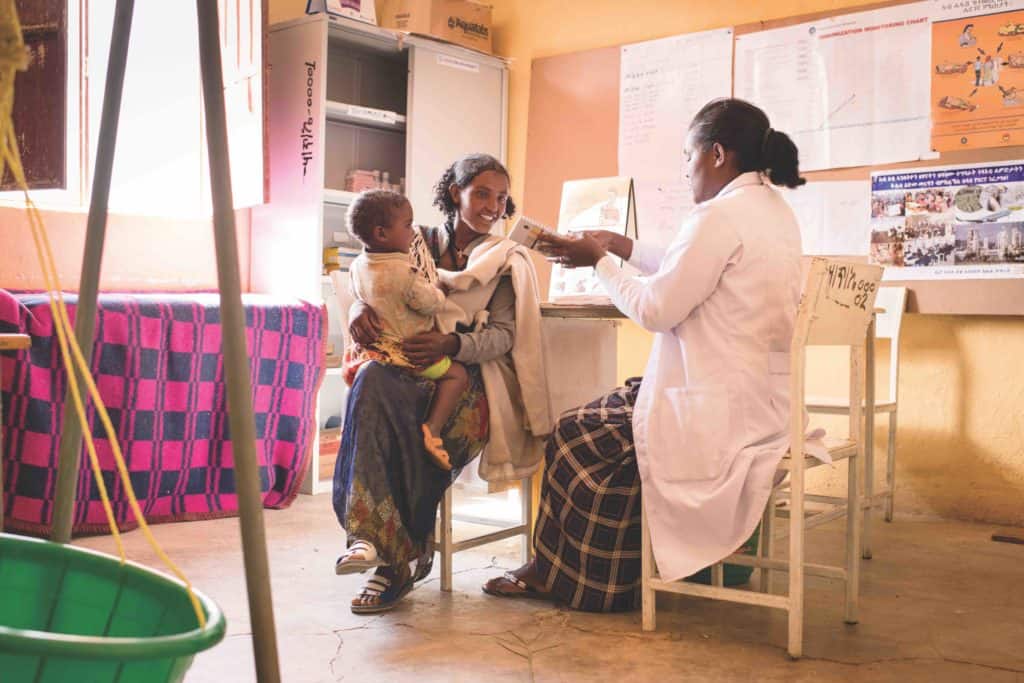This website uses cookies so that we can provide you with the best user experience possible. Cookie information is stored in your browser and performs functions such as recognizing you when you return to our website and helping our team to understand which sections of the website you find most interesting and useful.
Maternal, Newborn, Child Health and Nutrition
Global maternal and child mortality rates remain unacceptably high. Most of these deaths could be prevented with high-quality services and improved access to sanitation and nutrition. From pregnancy through the first years of a child’s life, mothers’ health and well-being are inextricably linked to those of their children. An array of factors and development outcomes influence maternal, newborn, and child health and nutrition (MNCH+N) behaviors throughout the life cycle. At JSI, we use social and behavioral science to make sense of the complexity and inform the design of social and behavior change (SBC) interventions.
We work with people at the heart of MNCH+N programming, including families, health workers, community leaders, policymakers, and market vendors, to co-design research and strategies that improve health outcomes. We support behaviors such as kangaroo mother care, childhood vaccination, purchasing fortified foods for the family, early and exclusive breastfeeding, and use of voluntary family planning services. We use behavior- and human-centered participatory research methods such as Trials of Improved Practices to understand which behaviors people (including providers) are willing and able to try given barriers or enablers they might be facing. We then co-create local, evidence-based approaches to help mothers, children, and their families get equitable, high-quality care.
For more information, contact Melinda McKay, Behavior Initiative Director at Melinda_McKay@jsi.com.
Project in Focus
USAID Strengthening Healthcare Access
Through the USAID Strengthening Healthcare Access project, we are working to affect people’s health-seeking behaviors in Yemen to enhance equitable access to and use of evidence-based MNCH+N and family planning and reproductive health services. Building on our work under the USAID Systems, Health, and Resiliency Project, we are engaging midwives, community health workers, women, boys, men, youth, elders, religious leaders, and families to improve norms and shift behaviors to increase demand for and supply of services in a complex and rapidly changing setting. We implemented an evidence-based SBC campaign that involved broadcasting 22 radio spots; establishing six school health clubs that reached nearly 17,000 female students; showing videos at 45 health facilities; and engaging 42 religious leaders to advance MCNH care. Overall, the campaign reached over six million people with messages about reproductive and MNCH. We also piloted an automated SMS reminder system that increased penta 3 vaccination uptake by 41 percent over four months, an intervention that will be scaled up in the near future.





